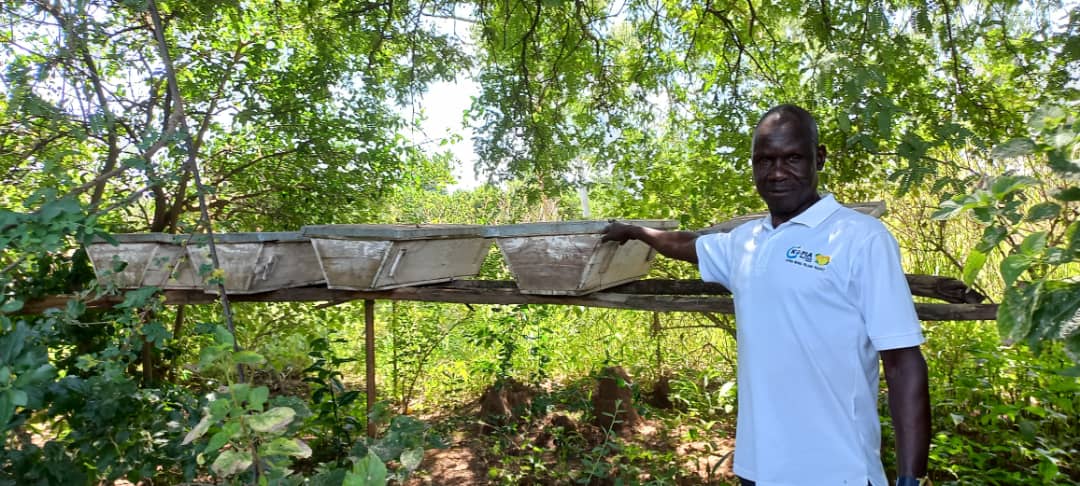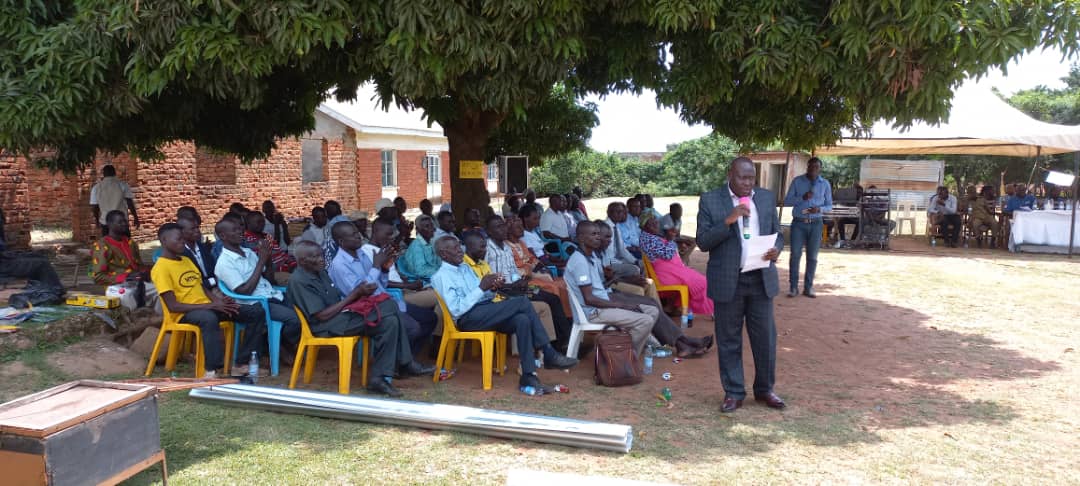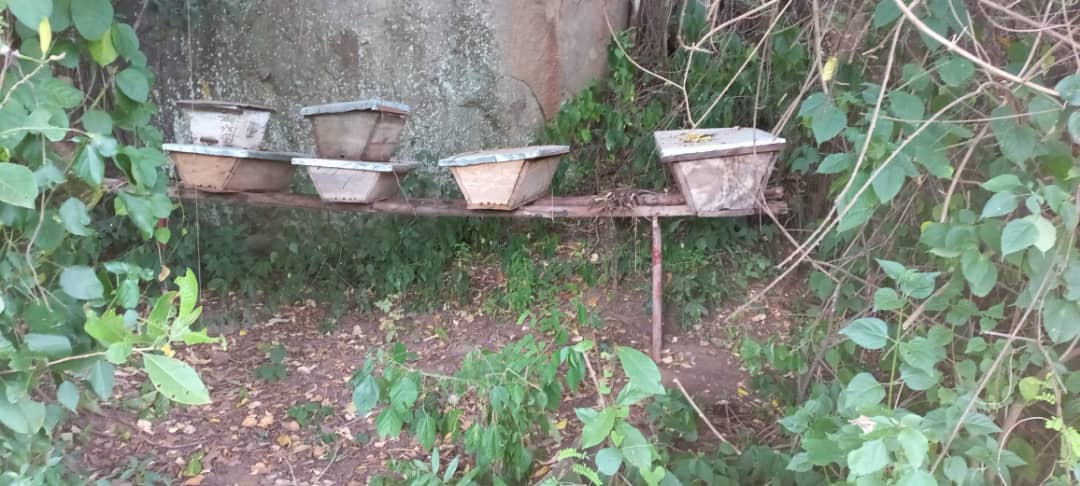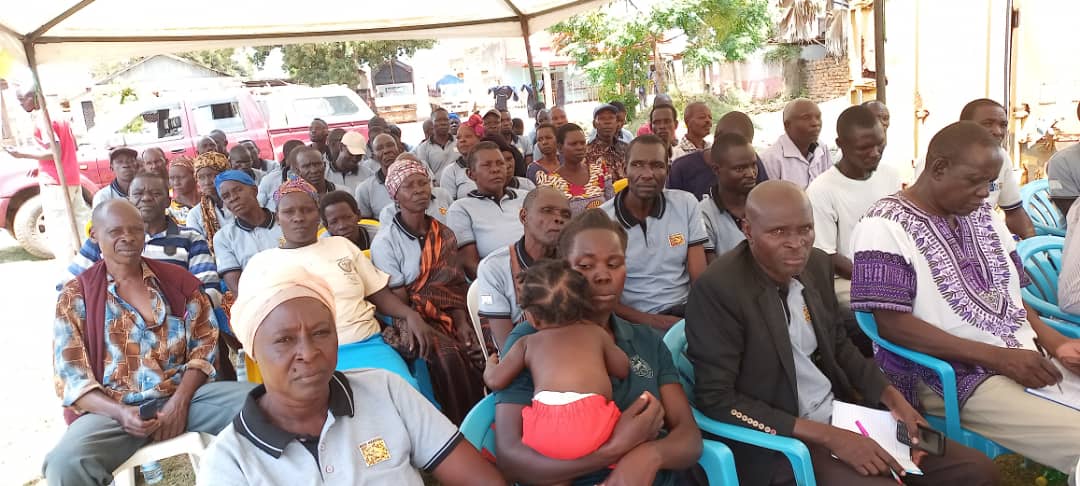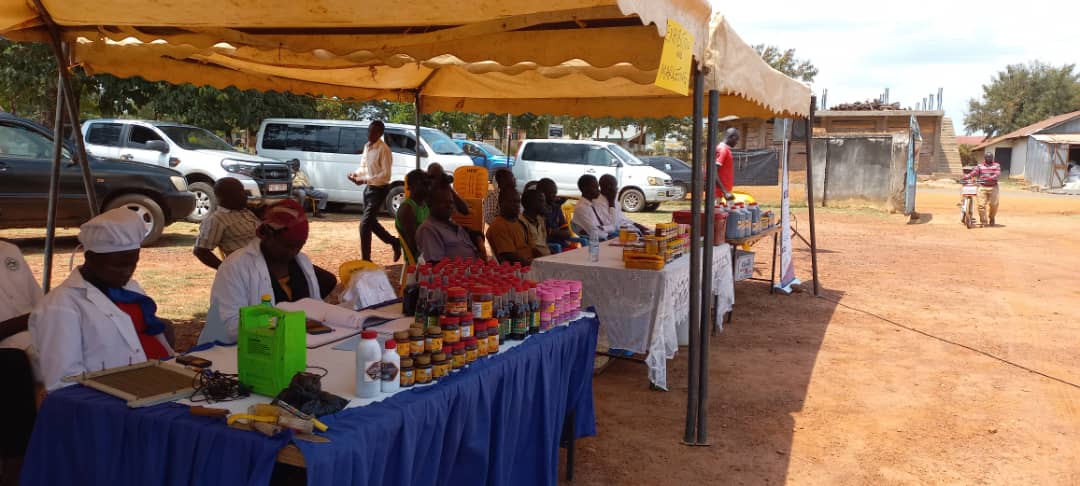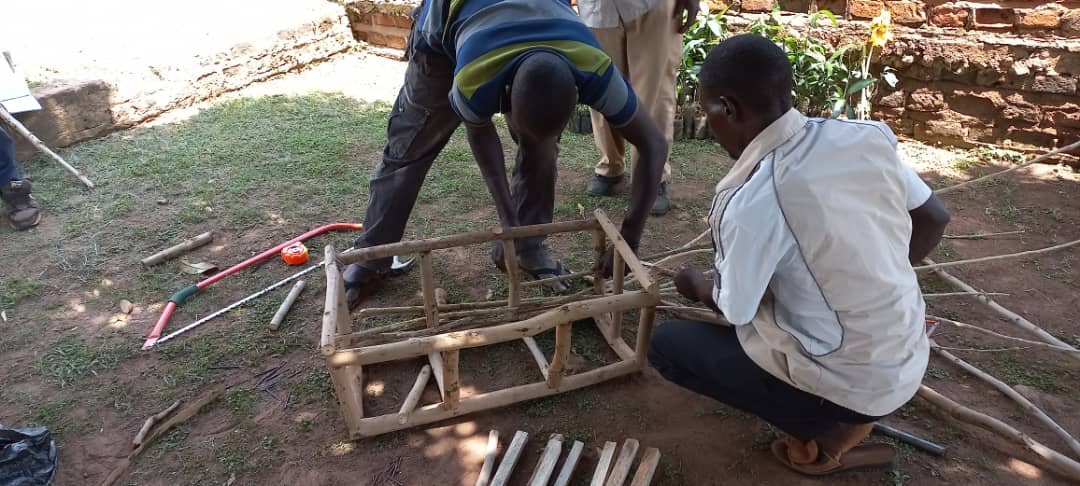Thirsty Bees

Municipality
Category / Sub-Category / Topic
Economic development, Local Economies
Type of investment needed
Grant
The challenge
The project
Know more...
Investment
(*): In kind/pro bonus
(**): Financing
Funds
Needed
Covered
Solicited
Investment
(*): In kind/pro bonus
(**): Financing
Stationery (*)
u$s 44.00
u$s 44.00
u$s 0.00
Provision for refreshments for awareness and registration (*)
u$s 1000.00
u$s 1000.00
u$s 0.00
Equipment of skilling center (**)
u$s 6115.28
u$s 0.00
u$s 6115.28
Equipment for establishing 2 bee villages in the districts (**)
u$s 6055.56
u$s 0.00
u$s 6055.56
Equipment for Establishing 1 tree nursery at the skilling center (**)
u$s 2390.28
u$s 1500.00
u$s 890.28
Equipment for Queen rearing establishment and training (**)
u$s 4583.33
u$s 2000.00
u$s 2583.33
Identification of site and construction of skilling center + establishment of queen rearing site (**)
u$s 41458.33
u$s 0.00
u$s 41458.33
Drafting of community bylaws (**)
u$s 416.67
u$s 0.00
u$s 416.67
Translation of the bylaws into Kumam and Ateso (**)
u$s 347.22
u$s 0.00
u$s 347.22
Training the apiary guides (**)
u$s 41.67
u$s 0.00
u$s 41.67
Partner facilitation backstopping (**)
u$s 416.67
u$s 0.00
u$s 416.67
10% Contribution to Executive Director 12 months (**)
u$s 2333.33
u$s 0.00
u$s 2333.33
10% Contribution to Finance and Adminstration Manager 12 months (**)
u$s 2000.00
u$s 0.00
u$s 2000.00
Salary for 4 Project Officers 12 months (**)
u$s 2333.33
u$s 0.00
u$s 2333.33
Communications Officer (**)
u$s 1166.67
u$s 0.00
u$s 1166.67
Salaries contribution for Accountant for 12 months (**)
u$s 833.33
u$s 0.00
u$s 833.33
Transport to and from communities for awareness and registration (*)
u$s 334.00
u$s 334.00
u$s 0.00
Administration Overheads (**)
u$s 6722.22
u$s 0.00
u$s 6722.22
Printing of copies community bylaws (**)
u$s 13.89
u$s 0.00
u$s 13.89
NSSF Contribution, 10% wages (**)
u$s 750.00
u$s 0.00
u$s 750.00
Funds
Needed
Covered
Solicited
Material de oficina. (*)
u$s 44.00
u$s 44.00
u$s 0.00
Provisión de refrigerios para concientización e inscripción. (*)
u$s 1000.00
u$s 1000.00
u$s 0.00
Equipamiento del centro de capacitación. (**)
u$s 6115.28
u$s 0.00
u$s 6115.28
Equipamiento para el establecimiento de 2 aldeas apícolas en los distritos. (**)
u$s 6055.56
u$s 0.00
u$s 6055.56
Equipamiento para el establecimiento de 1 vivero de árboles en el centro de capacitación. (**)
u$s 2390.28
u$s 1500.00
u$s 890.28
Equipamiento para el establecimiento y entrenamiento de cría de reinas. (**)
u$s 4583.33
u$s 2000.00
u$s 2583.33
Funds
Needed
Covered
Solicited
Identificación de sitio y construcción del centro de capacitación + establecimiento de sitio de cría de reinas. (**)
u$s 41458.33
u$s 0.00
u$s 41458.33
Redacción de reglamentos comunitarios. (**)
u$s 416.67
u$s 0.00
u$s 416.67
Traducción de los reglamentos al idioma Kumam y Ateso. (**)
u$s 347.22
u$s 0.00
u$s 347.22
Entrenamiento de los guías apícolas. (**)
u$s 41.67
u$s 0.00
u$s 41.67
Apoyo de facilitación de socios. (**)
u$s 416.67
u$s 0.00
u$s 416.67
Funds
Needed
Covered
Solicited
Contribución del 10% para el Director Ejecutivo durante 12 meses. (**)
u$s 2333.33
u$s 0.00
u$s 2333.33
Contribución del 10% para el Gerente de Finanzas y Administración durante 12 meses. (**)
u$s 2000.00
u$s 0.00
u$s 2000.00
Salario para 4 Oficiales de Proyecto durante 12 meses. (**)
u$s 2333.33
u$s 0.00
u$s 2333.33
Oficial de Comunicaciones. (**)
u$s 1166.67
u$s 0.00
u$s 1166.67
Contribución salarial para el Contador durante 12 meses. (**)
u$s 833.33
u$s 0.00
u$s 833.33
Funds
Needed
Covered
Solicited
Transporte hacia y desde las comunidades para concientización e inscripción. (*)
u$s 334.00
u$s 334.00
u$s 0.00
Gastos generales de administración. (**)
u$s 6722.22
u$s 0.00
u$s 6722.22
Impresión de copias de los reglamentos comunitarios. (**)
u$s 13.89
u$s 0.00
u$s 13.89
Contribución al Fondo de Seguridad Social Nacional (NSSF), el 10% de los salarios. (**)
u$s 750.00
u$s 0.00
u$s 750.00

